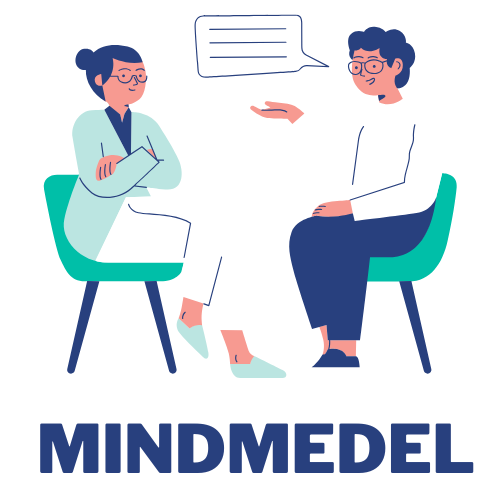Deep Friendship Among Autistic Individuals: A Guide to Understanding the Powerful Connections
Key Takeaways
- Autistic individuals form deep, meaningful friendships that are often misunderstood.
- The quality of friendships often outweighs the quantity.
- Shared interests, honesty, and mutual respect are at the heart of these connections.
- Deep friendships among autistic individuals can significantly enhance mental health and overall well-being.
- Inclusive environments are essential for helping autistic individuals forge strong, lasting bonds.
In a world where social connections are often defined by common interests, casual encounters, and surface-level relationships, there’s a deeper realm of friendship that is often overlooked—especially when it comes to individuals on the autism spectrum. The belief that autistic people struggle to form genuine, deep friendships has persisted for years. However, this belief couldn’t be further from the truth.
In this blog, we will explore deep friendships among autistic individuals, offering a closer look at the unique dynamics that shape these relationships. From the role of shared interests and intense emotional bonds to overcoming the challenges of social cues, we will uncover how autistic individuals form connections that are rich, meaningful, and intensely loyal. We will also discuss how society can better support these friendships and create inclusive spaces for deeper connections to flourish.
What Does Friendship Look Like for Autistic Individuals?
Defining Friendship for Autistic People
For many neurotypical individuals, friendships are often defined by a mix of casual socializing, group activities, and mutual social norms. However, for autistic individuals, friendships tend to be characterized by deep, one-on-one connections where quality matters far more than quantity.
- Trust and honesty are pillars of these friendships, and interactions often feel more genuine and meaningful.
- Autistic individuals value friendships where they can be themselves without the fear of judgment, making emotional authenticity a priority.
Friendships among autistic individuals are often centered on shared interests. It’s not uncommon for someone on the autism spectrum to have a very narrow but deeply engrossing focus—whether that’s a hobby, a subject of study, or a passion. These intense interests serve as a foundation for relationships, making it easier for individuals to bond over something they genuinely care about.
The Role of Shared Interests in Building Friendships
One of the strongest features of friendships among autistic individuals is the shared interest. Whether it’s a love of trains, coding, or a particular television show, common ground is often the first step in forming deep connections.
- Shared interests serve as natural conversation starters, and they eliminate the need for small talk, which can often feel awkward or uncomfortable for autistic people.
- These interests create a bonding experience, providing the opportunity for deeper understanding and emotional connection.
The Spectrum of Social Interaction
While socializing with groups can be overwhelming or uncomfortable for some autistic individuals, one-on-one interactions are often where deep friendships flourish. For autistic individuals, these smaller, more intimate settings allow them to feel heard, seen, and understood.
- A focused conversation about a particular interest can lead to intense connection and mutual respect.
- Social energy is also often conserved in one-on-one settings, reducing feelings of overwhelm or anxiety that might arise in group dynamics.
Why Are Deep Friendships Among Autistic Individuals Often More Intense?
Focus on Quality Over Quantity
In many ways, autistic individuals are less concerned with the number of friends they have. Instead, they prioritize quality relationships that bring genuine emotional fulfillment.
- Smaller circles are often preferred, where the depth of the connection is valued more than the sheer number of acquaintances.
- Loyalty and commitment to a select group of friends are often stronger in these relationships.
Authenticity and Acceptance in Friendships
For an autistic person, being in a friendship that is free from judgment is not just important—it’s essential. Authenticity is a core value in these relationships.
- Autistic individuals seek out friends who will accept them as they are, rather than trying to change them or impose social norms.
- True acceptance fosters trust and allows for a deeper emotional connection.
Emotional Intensity and Sensitivity
Another key factor in why friendships among autistic individuals are so intense is their emotional sensitivity. Many autistic individuals experience emotions at a heightened level. This can lead to incredibly rich emotional connections with friends.
- When an autistic individual forms a bond, they often feel it more deeply than their neurotypical peers.
- Vulnerability and openness are integral to these relationships, and they allow the bond to flourish in ways that are often overlooked in traditional friendships.
Building Trust and Communication in Deep Friendships
Direct and Honest Communication
Unlike many neurotypical individuals who may rely on subtlety or non-verbal cues, autistic individuals often thrive in friendships that are based on clear, direct communication.
- Misunderstandings are minimized when both friends are open and explicit about their feelings, needs, and boundaries.
- Honesty is appreciated, even when it’s difficult to express.
Non-Verbal Communication in Friendships
While autistic individuals may struggle with interpreting body language or facial expressions, they often compensate by relying on more explicit forms of communication, such as text or written messages.
- Visual or written communication can help to reduce misinterpretations of social cues, which makes interactions feel safer and more predictable.
Overcoming Social Anxiety and Stress in Friendships
Friendships among autistic individuals may be complicated by social anxiety or stress associated with interactions.
- Building confidence and developing coping strategies can help reduce the pressure of socializing.
- Friends can play a supportive role in creating safe spaces for these interactions, allowing for gradual social exposure without judgment.
Challenges Faced in Deep Friendships Among Autistic Individuals
Misunderstandings and Stereotypes
Society often carries misconceptions about the nature of friendships among autistic individuals. For instance, many people mistakenly believe that autistic individuals cannot form friendships at all.
- Stereotypes can create barriers, making it difficult for autistic individuals to be fully accepted in social circles.
- Breaking down these misconceptions requires greater awareness and education about autism and neurodiversity.
Difficulty with Social Cues and Reciprocity
While autistic individuals may form deep, meaningful bonds, they can struggle with the unspoken rules of social interactions, like reciprocity or reading social cues.
- Understanding and patience from friends and peers is crucial in overcoming these challenges.
- Clear verbal communication can help navigate complex social exchanges.
Emotional Overload and Sensory Sensitivity
Social interactions can sometimes overwhelm autistic individuals, particularly when they involve sensory stimuli like noise or crowded environments.
- Sensory sensitivities may lead to emotional overload, which can affect the ability to maintain friendships in certain settings.
- Creating sensory-friendly spaces can help reduce these challenges and create opportunities for more relaxed, enjoyable interactions.
The Role of Support Systems in Fostering Friendships
Family Support and Encouragement
Family plays a vital role in helping autistic individuals build social connections. Parents and family members can model social behaviors and provide guidance on maintaining friendships.
- Encouragement from family members can make a significant difference in promoting healthy, lasting friendships.
Peer Support Programs and Social Skills Training
Peer support programs are especially important in helping autistic individuals develop social skills and build connections.
- Social skills training can provide structured support, helping individuals learn how to navigate friendships more effectively.
- These programs also allow autistic individuals to connect with peers who share similar experiences.
Therapists and Social Coaches
Therapists and social coaches can work one-on-one with autistic individuals to help them gain the confidence and tools they need to form meaningful friendships.
- These professionals teach strategies for handling social anxiety, managing conflict, and developing communication skills.
How Neurotypical People Can Support Deep Friendships Among Autistic Individuals
Being Patient and Understanding
Building deep friendships with an autistic individual requires a high level of patience and empathy.
- It’s important to be open to different ways of interacting and to avoid rushing or pressuring the relationship.
Adjusting Expectations and Social Norms
Neurotypical friends may need to adjust their expectations of communication and interaction.
- Flexibility and understanding that autistic individuals may approach friendships differently is key to cultivating a healthy bond.
Creating Inclusive Social Spaces
Creating inclusive social spaces—whether in schools, workplaces, or communities—ensures that autistic individuals feel welcome and valued.
- By fostering an environment of inclusion, neurotypical individuals can help break down the social barriers that often make friendship-building more difficult.
Celebrating Deep Friendships Among Autistic Individuals
Deep friendships among autistic individuals are built on trust, honesty, shared interests, and mutual respect. These relationships are often more intense due to emotional sensitivity and the desire for authenticity. While there are challenges—such as misunderstandings, social cue difficulties, and sensory overload—the benefits of these friendships are profound. They can enhance emotional well-being, provide a sense of belonging, and contribute to an overall higher quality of life.
Call-to-Action:
Now that you understand the true depth of friendships among autistic individuals, I encourage you to challenge the stereotypes and misconceptions surrounding autism. It’s time to celebrate the unique and meaningful bonds that autistic people form with others. Let’s work together to create more inclusive and accepting environments where everyone, regardless of their neurodiversity, can form lasting friendships. Support inclusive initiatives and share this knowledge to make a difference!
Common Questions About Deep Friendships Among Autistic Individuals
- What do deep friendships among autistic people look like?
Deep friendships among autistic individuals are often intense and authentic, built on mutual respect, shared interests, and emotional depth. These friendships are not defined by the quantity of social interactions, but by the quality of the bond. Autistic individuals tend to form one-on-one connections that are highly focused and more genuine. These friendships are characterized by a deep level of understanding and emotional reciprocity, where both parties can be vulnerable and authentic without fear of judgment. They value trust, honesty, and acceptance, making these relationships very different from casual friendships or acquaintanceships.
- How do autistic people form friendships?
Autistic people form friendships by looking for individuals who share common interests and who provide a safe, non-judgmental space for connection. They may struggle with reading social cues or interpreting body language, but they often form deep bonds around shared activities, hobbies, or passions. For example, a mutual interest in video games, science, or art can act as the foundation for a strong friendship. These connections are often more authentic and direct than the more casual or superficial friendships that may be typical among neurotypical individuals. For many autistic individuals, one-on-one interactions are preferred, as they provide a clearer and more manageable way to connect.
- Why are autistic individuals so loyal in friendships?
Autistic individuals tend to be extremely loyal in their friendships because they place high value on authenticity and trust. When they find someone who accepts them for who they are—without expecting them to conform to social norms or change their behavior—they often form deep, lasting bonds. Because autistic individuals may struggle to maintain large social circles, they are more likely to invest deeply in a smaller group of close friends. Loyalty is often a natural extension of this deep emotional investment. When an autistic person forms a friendship, they tend to be steadfast and dedicated, offering their support and presence in a way that may feel unwavering and constant.
- What challenges do autistic people face in friendships?
Despite their capacity for forming deep connections, autistic individuals often face several challenges when it comes to friendships:
- Misunderstanding social cues: Autistic individuals may struggle with interpreting body language, facial expressions, or tone of voice, which can lead to misunderstandings in social situations.
- Social anxiety: Many autistic people experience social anxiety or feel overwhelmed by large social settings, making it difficult to engage in group interactions.
- Reciprocity issues: There may be difficulty in understanding or reciprocating the give and take of a conversation or friendship, leading to awkward or strained interactions.
- Sensory overload: Overstimulation from noise, lights, or busy environments can make socializing physically and emotionally taxing, which may interfere with forming and maintaining friendships.
- Stigma and stereotypes: Misconceptions about autism and friendship can make it more difficult for autistic individuals to find people who are open-minded and accepting. These societal barriers can cause feelings of isolation or rejection.
- How can neurotypical individuals support deep friendships with autistic people?
Neurotypical individuals can play a crucial role in supporting deep, lasting friendships with autistic people by following a few simple principles:
- Be patient and understanding: Autistic people may take longer to process social interactions or express themselves. Patience, combined with a willingness to listen and understand, helps foster trust.
- Adapt communication styles: Autistic individuals often prefer direct and clear communication, so neurotypical friends should avoid using too many non-verbal cues or indirect language. Clear conversations about boundaries and needs can build strong understanding.
- Respect differences: Embrace the fact that autistic individuals may interact or perceive the world differently. Be willing to adjust expectations around how conversations or friendships might look.
- Create inclusive spaces: Make efforts to include autistic individuals in group activities and social gatherings, ensuring they feel welcomed and respected.
- Support sensory needs: If you’re in a social setting, be mindful of sensory sensitivities. For example, you can offer a quieter space or allow them to take breaks if things become overwhelming. This shows respect for their needs and ensures a positive social experience.





